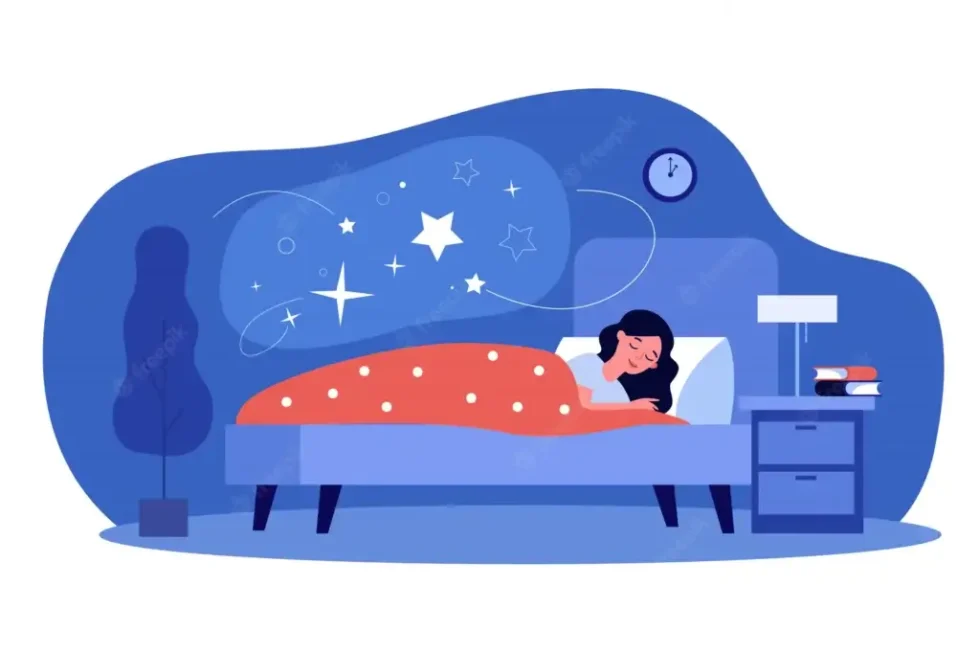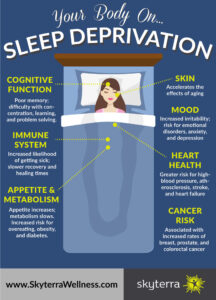Sleepless and Stressed? Here’s How to Reclaim Your Rest and Recharge Your Health

Most people will experience sleep problems at some stage in their life, according to the American Sleep Association. Over 35% of adults sleep less than 7 hours during a typical 24-hour period, despite guidelines recommending between 7 and 9 hours for optimal health. This sleep deficit can lead to fatigue, muscle pain, and long-term health issues if it becomes a regular habit.
A major cause of sleep deprivation is stress. When you’re stressed, your body produces cortisol, which keeps you alert and ready for action. While useful in short bursts, chronic stress can make it hard to relax and fall asleep, leading to a cycle of poor sleep and more stress. Reducing stress through relaxation techniques like meditation, deep breathing, or light yoga before bed can help lower cortisol levels and make it easier to wind down at night.
Technology is another significant contributor to poor sleep. Many people use phones, tablets, or computers late into the evening, but the blue light emitted from screens suppresses melatonin, the hormone responsible for regulating sleep. This can delay your ability to fall asleep. To counteract this, try avoiding screens for at least an hour before bed and instead engage in calming activities like reading, journaling, or light stretches.

Inconsistent sleep patterns also disrupt rest. Your body follows a natural circadian rhythm, which regulates your sleep-wake cycle. Going to bed and waking up at irregular times can confuse this internal clock, making it harder for you to fall asleep and wake up refreshed. Establishing a consistent sleep schedule—even on weekends—can help regulate your circadian rhythm and improve overall sleep quality.
Dietary habits play an important role as well. Consuming stimulants like caffeine late in the day can interfere with your ability to fall asleep, while alcohol, despite its drowsy effects, can disrupt your sleep cycle, leading to poor-quality rest. It’s best to avoid caffeine after the afternoon and limit alcohol in the evening. A light snack before bed, such as nuts or warm milk, can stabilize blood sugar and help promote restful sleep.
Fragrance and scent are lesser-known but effective tools for improving sleep quality. Scents like lavender, chamomile, and sandalwood have been shown to reduce anxiety and promote relaxation, helping you fall asleep faster and sleep more deeply. Adding these essential oils to your bedtime routine, either through a diffuser or pillow spray, can create a calm and inviting atmosphere for rest.

Sleep deprivation doesn’t just affect your energy levels—it has serious health consequences. Lack of sleep impairs cognitive function, making it harder to concentrate, remember things, and make decisions. Over time, chronic sleep deprivation can increase the risk of developing conditions like dementia. Poor sleep is also linked to weakened immune function, making you more susceptible to illness, and raises the risk of chronic diseases such as heart disease, high blood pressure, and diabetes. Additionally, sleep deprivation affects metabolism, contributing to weight gain and obesity by increasing cravings for unhealthy foods.

To improve your sleep, start by creating a consistent bedtime routine. Going to bed and waking up at the same time each day will help regulate your internal clock. Avoid screens an hour before bed, and instead, opt for relaxing activities like reading or stretching. Incorporating calming fragrances such as lavender can also enhance your bedtime environment and signal to your body that it’s time to rest. Lastly, limit stimulants like caffeine and alcohol in the evening, and practice stress-relieving activities like meditation to promote relaxation.
By addressing factors like stress, technology use, irregular schedules, and diet, you can improve your sleep quality, boost your health, and feel more energized each day. Taking small but consistent steps toward better sleep will not only help you feel more rested, but it will also protect you from the long-term effects of chronic sleep deprivation.
In the end, sleep is the foundation of physical and mental health. Making it a priority will allow you to restore your energy, recover from fatigue, and feel more refreshed every day.
